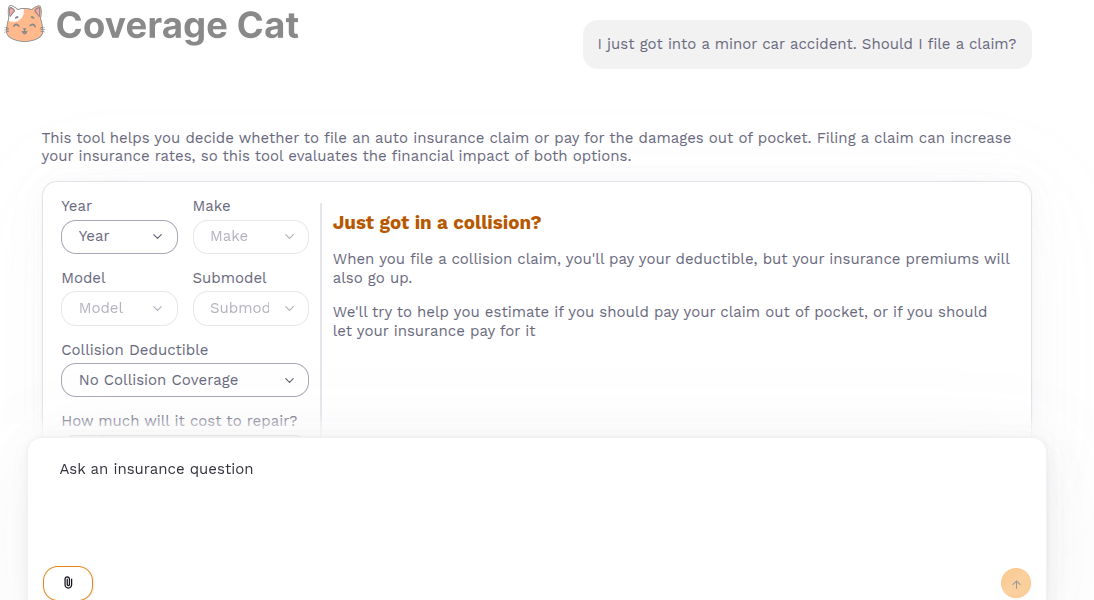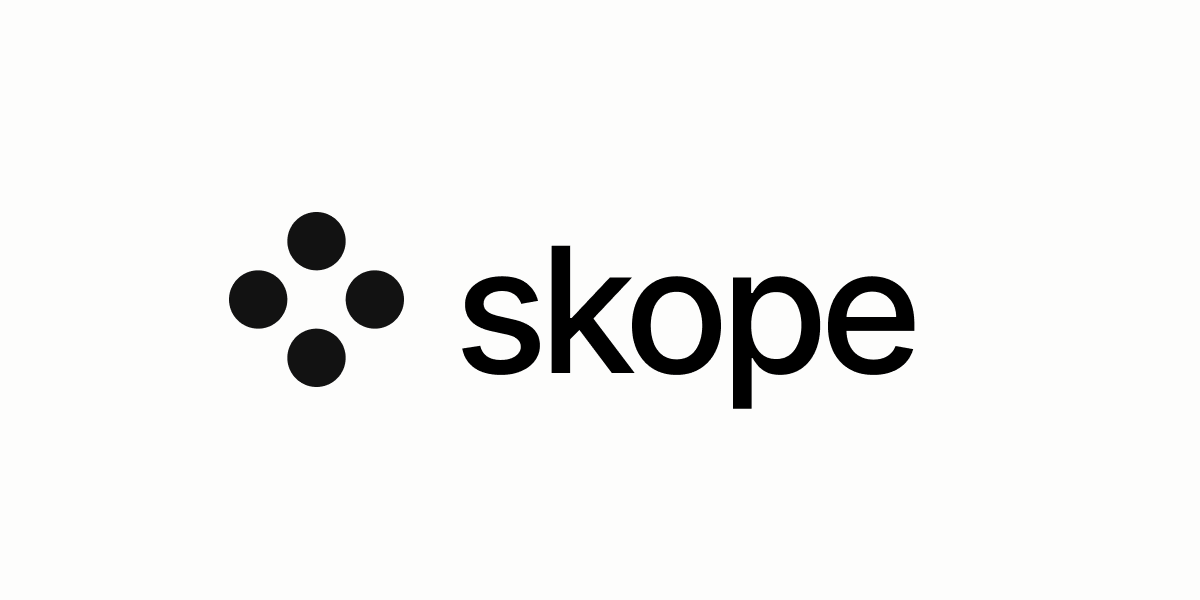Selecting the right payroll solution represents a critical decision for small business owners focused on operational efficiency.
Selecting the right payroll solution represents a critical decision for small business owners focused on operational efficiency. QuickBooks Online Payroll and Gusto stand as two leading contenders in the payroll software marketplace today. Both platforms offer comprehensive solutions for processing payroll, managing tax obligations, and handling various HR responsibilities that modern businesses require.
What Makes an Effective Payroll Solution?
Finding the perfect payroll software requires understanding your business needs and how different solutions address them. Small business owners often struggle with balancing functionality, cost, and ease of use when evaluating payroll platforms.
QuickBooks Online Payroll and Gusto have emerged as popular choices because they automate complex payroll processes while reducing human error. These cloud-based solutions handle everything from wage calculations to tax filings, freeing up valuable time for business owners to focus on growth and strategy. Their differences lie primarily in their approach to integration, HR capabilities, and overall user experience.
Many businesses report saving 5-10 hours per month after implementing a dedicated payroll solution, demonstrating the significant impact these tools can have on operational efficiency. The right choice depends on your existing software ecosystem, specific payroll requirements, and future growth plans. Understanding the key differences between these platforms will help you make an informed decision that aligns with your business objectives.
How Do These Platforms Handle Core Payroll Tasks?
Both QuickBooks and Gusto excel at automating essential payroll functions, though they differ in specific capabilities. The fundamental payroll processing features determine how efficiently you can manage your employee payments and compliance requirements.
QuickBooks Online Payroll offers impressive processing speeds with same-day direct deposit options in higher-tier plans, while its basic plan provides next-day deposit service. This speed advantage makes QuickBooks particularly attractive for businesses where cash flow timing is critical. The platform also includes automatic tax calculations and filings for federal and state taxes, with a penalty-free guarantee for tax filing errors in its Elite plan—providing additional peace of mind for business owners concerned about compliance issues.
Gusto processes direct deposits within one to two business days across all its plans, which may be sufficient for most small businesses. The platform stands out by handling local tax filings even in its lower-tier plans, offering comprehensive coverage for businesses operating in multiple jurisdictions. Gusto also provides unlimited payroll runs with no additional fees, allowing flexibility for bonus payments, commissions, or off-cycle payrolls without incurring extra costs.
Key payroll processing features for QuickBooks:
- Speed advantage: Same-day direct deposit available in premium plans
- Tax protection: Up to $25,000 in tax penalty protection with Elite plan
- Accounting integration: Seamless connection with QuickBooks accounting software
- Automated calculations: Handles all payroll taxes and deductions automatically
Key payroll processing features for Gusto:
- Unlimited flexibility: No additional fees for multiple payroll runs
- Comprehensive tax coverage: Includes local tax filings in all plans
- Contractor management: Dedicated contractor-only plan available
- Transparent processing: Clear timeline for all payroll activities
How Do HR Capabilities Compare Between Platforms?
The human resources functionality offered by payroll platforms can significantly impact your overall workforce management strategy. Modern businesses need more than just payment processing—they require tools for onboarding, benefits administration, and employee engagement.
Gusto distinguishes itself with robust HR features that extend well beyond basic payroll. The platform includes job postings, digital onboarding support, customizable online offer letters, and comprehensive employee profiles. Higher-tier Gusto plans provide access to HR advisors and an extensive resource center, making it suitable for businesses that need substantial HR support without dedicated personnel. The self-service portal focuses heavily on employee engagement and benefits management, creating a more holistic experience.
QuickBooks Online Payroll offers more streamlined HR capabilities focused on essential functions rather than comprehensive workforce management. While it provides a self-service portal for employees to access pay stubs and tax documents, its HR features are less extensive than Gusto's. This approach works well for smaller businesses with simpler HR needs or those that use separate HR management systems.
Both platforms offer benefits management capabilities, but with different coverage areas. Gusto provides health insurance options in approximately 38 states plus Washington, D.C., along with 401(k) plans, commuter benefits, and college savings plans. QuickBooks Payroll offers health benefits in 48 states, potentially making it more suitable for businesses with employees across multiple regions.
What Reporting and Analytics Tools Do They Offer?
Effective reporting capabilities allow businesses to gain insights from payroll data and make informed decisions about workforce management. The depth and usability of these tools vary significantly between platforms.
QuickBooks Online Payroll leverages its accounting heritage to deliver detailed financial reports that integrate seamlessly with payroll entries. This integration creates a unified view of business finances, making it easier to track labor costs against overall performance. The platform's robust time tracking features come through integration with QuickBooks Time (formerly TSheets), offering GPS tracking, mileage tracking, and geofencing capabilities that benefit businesses with remote or mobile teams.
Gusto provides comprehensive reporting options that extend beyond financial data to include HR analytics and employee performance metrics. These additional insights can support strategic decision-making around workforce development and organizational planning. While Gusto offers basic time tracking in higher-tier plans, its capabilities may not match the depth of QuickBooks' specialized time tracking solution.
QuickBooks reporting strengths:
- Financial integration: Payroll data flows directly into accounting reports
- Time tracking detail: Comprehensive tracking options for hourly employees
- Tax liability visibility: Clear reporting on all tax obligations
- Mobile reporting access: View key reports through dedicated mobile app
Gusto reporting strengths:
- HR analytics: Employee performance and engagement metrics
- Benefit expense tracking: Detailed reporting on all benefit programs
- Custom report builder: Flexible reporting options for specific needs
- Workforce planning tools: Data to support strategic staffing decisions
How Much Will Each Solution Cost Your Business?
Pricing represents a critical consideration for small businesses evaluating payroll solutions. Understanding the fee structure helps determine the total cost of ownership and value proposition of each platform.
Gusto offers several pricing tiers designed for different business sizes and needs. The Simple Plan starts around $40-$49 per month plus approximately $6 per employee monthly, providing full-service payroll, basic HR tools, and local tax filings. The Plus Plan increases to roughly $80 per month plus $12 per employee, adding multi-state payroll, next-day direct deposits, time tracking, and enhanced HR features. Gusto also offers a Premium Plan with custom pricing for larger enterprises needing comprehensive HR consulting and a Contractor-Only Plan at about $35 per month plus $6 per contractor.
QuickBooks Online Payroll presents three main pricing options. The Core Plan begins at approximately $45-$50 monthly plus $5-$6 per employee, offering basic payroll processing with next-day direct deposits. The Premium Plan costs roughly $85 per month plus $9 per employee, adding mobile time tracking, HR support, and local tax filings. The Elite Plan runs approximately $130 monthly plus $10-$11 per employee, including same-day direct deposit, tax penalty protection, and personal HR advisor services.
For a small business with 15 employees, the monthly costs would be comparable between basic plans, but differences emerge as you scale or require more advanced features. Gusto may offer better value for HR-focused businesses despite higher per-employee costs, while QuickBooks might be more economical for companies already using its accounting software.
How Do Integration Capabilities Affect Workflow?
The ability to connect payroll data with other business systems significantly impacts operational efficiency. Integration capabilities determine how seamlessly information flows between different software solutions.
QuickBooks Online Payroll operates within the larger QuickBooks ecosystem, creating nearly effortless integration with QuickBooks accounting and inventory management tools. This native integration automatically syncs payroll data into your general ledger, eliminating manual data entry and reducing reconciliation time. The system also connects directly with QuickBooks Time for time tracking and TurboTax for simplified tax filing, creating a comprehensive financial management environment.
Gusto focuses on broad third-party integrations, connecting with various accounting platforms (including QuickBooks), time tracking applications, HR management tools, and benefits administration services. This flexibility accommodates businesses using multiple software solutions from different providers. Gusto's planned open API development promises to further expand integration options over time, potentially increasing its versatility for businesses with complex software ecosystems.
The integration decision often hinges on your existing software infrastructure. Businesses already using QuickBooks for accounting will find tremendous value in the seamless connection with QuickBooks Payroll. Companies requiring diverse HR integrations or using multiple specialized tools may benefit more from Gusto's flexible approach to connectivity.
Which Platform Offers Better User Experience?
User experience significantly impacts adoption rates and overall satisfaction with payroll software. An intuitive interface reduces training time and minimizes errors during critical payroll processes.
QuickBooks Online Payroll shares its design philosophy with the broader QuickBooks platform, creating a familiar environment for existing QuickBooks users. The interface consolidates payroll and financial transactions into a unified view, reducing the need to switch between multiple tools. QuickBooks offers a dedicated mobile app that enables on-the-go payroll processing, report viewing, and employee information management—valuable features for busy managers who need flexibility.
Gusto has built its reputation on exceptional user experience with an intuitive, visually appealing interface that requires minimal training. New users frequently praise its simplicity and logical navigation structure. While Gusto lacks a dedicated mobile app for payroll functions, its web-based platform works well on mobile browsers and tablets. The platform provides clear step-by-step setup guides and an extensive resource center that simplifies the onboarding process for new users.
Both platforms prioritize user experience but take different approaches. QuickBooks focuses on integration and mobile functionality, while Gusto emphasizes intuitive design and simplified workflows. Your preference may depend on whether you value mobile access, design aesthetics, or integration with existing systems.
QuickBooks user experience highlights:
- Familiar interface: Consistent with other QuickBooks products
- Dedicated mobile app: Complete payroll management on mobile devices
- Integrated dashboard: Single view of financial and payroll data
- Streamlined workflows: Efficient processes for regular payroll tasks
Gusto user experience highlights:
- Intuitive design: Minimal learning curve for new users
- Clear guidance: Step-by-step instructions for all processes
- Modern interface: Visually appealing and logically organized
- Comprehensive help resources: Extensive support documentation
How Do Support Options Compare?
Access to reliable customer support can make a significant difference when managing critical payroll functions. Both platforms offer various support channels, but with different approaches to service delivery.
QuickBooks provides support through phone, chat, and email channels, with expanded hours for higher-tier plans. The Elite plan includes a dedicated payroll specialist who can provide personalized assistance with complex issues. QuickBooks also maintains an extensive knowledge base with tutorials, guides, and troubleshooting resources that help users resolve common problems independently.
Gusto emphasizes responsive customer service across all plan levels, with support available via phone, email, and chat during business hours. The platform's higher-tier plans include access to certified HR professionals who can provide guidance on compliance issues and best practices. Gusto's help center features comprehensive documentation, video tutorials, and step-by-step guides designed for users of all experience levels.
Support quality often becomes most apparent during critical situations like tax filing deadlines or when resolving payroll discrepancies. Both platforms receive generally positive reviews for their support services, though individual experiences may vary based on the complexity of issues and plan level.
Which Businesses Should Choose Each Platform?
The ideal platform choice depends on your specific business characteristics, existing software ecosystem, and future growth plans. Understanding which solution aligns with different business profiles can help narrow your decision.
QuickBooks Online Payroll works best for businesses already using QuickBooks accounting software, as the seamless integration creates significant efficiency advantages. Companies requiring fast, reliable payroll processing with same-day direct deposit options in higher-tier plans will appreciate QuickBooks' speed capabilities. Businesses with relatively straightforward HR needs and fewer than 50 employees typically find QuickBooks provides sufficient functionality without unnecessary complexity. Organizations that prioritize detailed accounting integration and robust financial reporting will benefit from QuickBooks' strength in these areas.
Gusto represents an excellent choice for businesses needing comprehensive HR functionality alongside payroll processing. Companies planning to scale beyond 50 employees will appreciate Gusto's more robust HR tools that support growth. Organizations requiring extensive third-party integrations to connect various business processes will benefit from Gusto's flexible connectivity options. Businesses prioritizing user experience and simplified onboarding will find Gusto's intuitive interface particularly valuable.
Geographic considerations may also influence your decision. QuickBooks offers health benefits in 48 states, while Gusto covers approximately 38 states plus Washington, D.C. This difference could be decisive if your business operates in states covered by one platform but not the other.
- Evaluate your current software ecosystem and integration needs
- Consider your business size and growth trajectory over the next 2-3 years
- Assess the complexity of your HR requirements beyond basic payroll
- Determine whether speed of direct deposit represents a critical factor
- Review geographic coverage for benefits if applicable to your workforce
How to Make Your Final Payroll Software Decision
Choosing between QuickBooks and Gusto requires careful consideration of your business priorities and operational requirements. Following a structured evaluation process helps ensure you select the platform that best aligns with your needs.
Start by documenting your essential payroll requirements, including payment frequency, tax filing needs, and employee classifications. Consider your growth projections for the next 2-3 years to ensure your chosen platform can scale appropriately. Evaluate your existing software ecosystem and determine which integrations are most critical for your operations. Review your HR needs beyond basic payroll to assess whether you require comprehensive HR functionality or simpler employee management tools.
Take advantage of free trials or product demos offered by both platforms to experience their interfaces and workflows firsthand. This hands-on testing provides valuable insights into usability and feature accessibility that specifications alone cannot convey. Consider consulting with your accountant or financial advisor who may have experience with both platforms and can provide guidance based on your specific financial structure.
Decision factors for QuickBooks:
- Accounting integration: Already using QuickBooks for financial management
- Processing speed: Need for same-day direct deposit capabilities
- Tax guarantee: Value the tax penalty protection in higher-tier plans
- Mobile access: Require comprehensive mobile app functionality
Decision factors for Gusto:
- HR functionality: Need robust employee management features
- User experience: Prioritize intuitive interface and simplified workflows
- Integration flexibility: Require connections with diverse third-party applications
- Benefit options: Need comprehensive benefits administration capabilities
What Implementation Challenges Should You Anticipate?
Transitioning to a new payroll system involves potential challenges that require planning and preparation. Understanding common implementation issues helps create a smoother migration process.
Data migration represents one of the most significant challenges when implementing new payroll software. Transferring employee information, tax settings, and historical payroll records requires careful attention to detail and validation. Both QuickBooks and Gusto offer implementation support, but the complexity increases with the number of employees and length of payroll history. Planning your transition between tax quarters or at the beginning of a calendar year can minimize complications with tax reporting.
Training requirements vary between platforms, with Gusto generally requiring less initial training due to its intuitive interface. QuickBooks may have a steeper learning curve for users unfamiliar with its ecosystem, though existing QuickBooks users will find the transition more straightforward. Both platforms offer onboarding assistance, but allocating time for team members to become comfortable with the new system remains essential for successful implementation.
Integration configuration may require technical expertise, particularly when connecting with third-party applications. QuickBooks offers more seamless integration within its ecosystem but may require additional setup for external connections. Gusto provides broader third-party integration options but might need more configuration time to establish all necessary connections. Documenting your integration requirements before implementation helps ensure all systems communicate effectively after migration.
Maximize Your Payroll Software Investment Today
Selecting the right payroll solution represents a strategic decision that impacts your operational efficiency and employee satisfaction. Both QuickBooks Online Payroll and Gusto offer powerful features that can transform your payroll processes.
QuickBooks Online Payroll delivers exceptional value for businesses already integrated with the QuickBooks ecosystem, providing seamless accounting connections and rapid payment processing. Its strength in financial reporting and tax compliance makes it particularly suitable for businesses focused on streamlined financial management. The platform's mobile capabilities and same-day direct deposit options in premium plans offer flexibility that many small businesses find invaluable for managing cash flow and payroll responsibilities.
Gusto stands out with its comprehensive HR functionality and user-friendly interface, making it an excellent choice for growing businesses with evolving workforce management needs. Its intuitive design requires minimal training while delivering powerful capabilities for employee onboarding, benefits administration, and performance management. The platform's flexibility and broad integration options create a foundation that can adapt to changing business requirements as your organization expands.
Your ideal choice depends on your specific business context, including your existing software infrastructure, HR complexity, and growth trajectory. By carefully evaluating these factors against the strengths of each platform, you can select the solution that best positions your business for efficient payroll management and future success. Take advantage of free trials to experience each platform firsthand before making your final decision.
Simplify Startup Finances Today
Take the stress out of bookkeeping, taxes, and tax credits with Fondo’s all-in-one accounting platform built for startups. Start saving time and money with our expert-backed solutions.
Get Started









.png)









